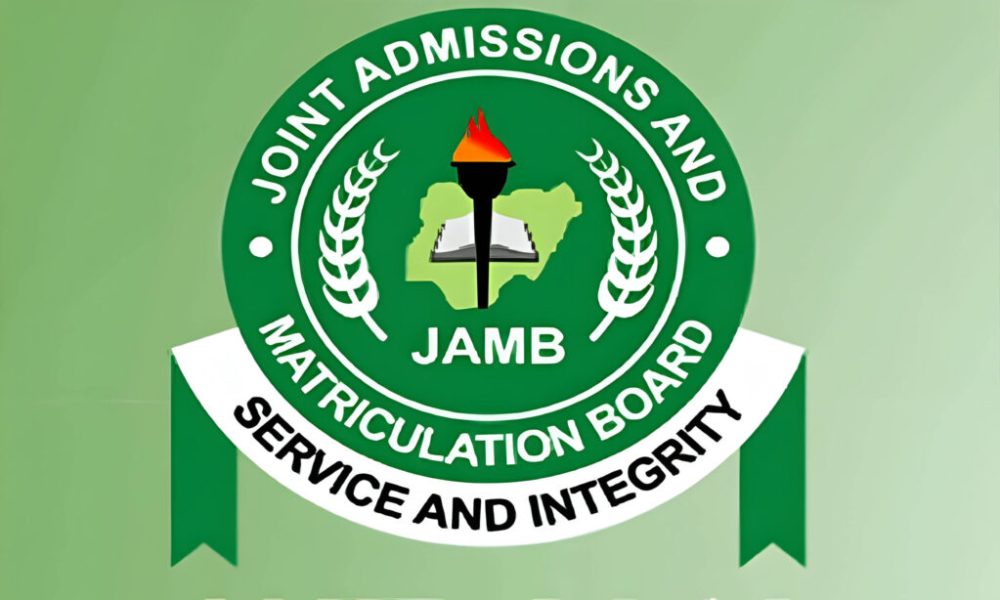The Joint Admission Matriculation Board (JAMB) has threatened to sanction higher institutions that fail to submit lists of students admitted immediately after matriculation.
This was revealed in a memo ‘CLARIFICATION ON DISCLOSURE OF ADMITTED CANDIDATES OUTSIDE CAPS( 2017-DATE)’ by the Jamb Admission Matriculation Board (JAMB) obtained by Channels Television.
The initiative, according to JAMB’s Public Communications Advisor, Fabian Benjamin, is one of the recommendations made by a committee set up by the Federal Government to combat fake degree racketeering in the country.
According to the memo, institutions are to “regularly submit their matriculation lists to the Federal Ministry of Education not later than three months after matriculation ceremonies.”
The list is expected to be submitted through the dedicated channel of JAMB.
“The Board has observed a large number of candidates thronging its offices to resolve issues related to the disclosure of candidates admitted outside the Central Admissions Processing System (CAPS) from 2017 to date. While we appreciate the enthusiasm, we must correct the misconception that the focus is on candidates’ actions. The true emphasis lies with the institutions, which must disclose all candidates admitted outside CAPS before the August 31st, 2024 deadline.
“This directive requires immediate attention and compliance. We urge institutions to carefully review our initial letter and ensure full compliance, as failure to disclose will result in severe consequences. Candidates are also reminded not to accept admissions outside CAPS.
“The Board reiterate that candidates not disclosed by institutions would not be entertained. The Board will not tolerate any condonement of undisclosed admissions moving forward.”
The development comes after the Federal Government set up an Inter-Ministerial Investigative Committee on Degree Certificate Milling, to probe the activities of certificate racketeers following an investigative report published by Daily Nigerian which exposed the activities of fake degree mills in the Benin Republic.
In a similar development, a memo addressed to the JAMB on July 15, 2024, the education ministry said, “You may recall that following the publication of allegations of certificate racketeering involving some foreign institutions, especially in Cotonou, Benin Republic, and other countries, the ministry constituted an inter-ministerial committee to investigate the allegations to find lasting solutions.
“The committee has submitted its report and the Honourable Minister of Education has approved its recommendations for implementation.
“In that regard, I hereby convey the request of the honourable minister for the implementation of the following recommendations of the committee:
“Enforce the mandatory requirement for all tertiary institutions in Nigeria to exclusively conduct their admissions processes through the Central Admissions Processing System under the auspices of the Joint Admissions and Matriculation Board; mandate all tertiary institutions in Nigeria to regularly submit their matriculation lists to the Federal Ministry of Education not later than three months after matriculation ceremonies through the dedicated channel of the Joint Admissions and Matriculation Board.
“You are kindly requested to implement the above recommendations and furnish the ministry with implementation updates.”
Channels had on Thursday, reported how the National Youth Service Corp (NYSC), said a total of 54 corps members who were illegally mobilised by the University of Calabar, had been demobilised.
This is in addition to the earlier 101 certificates that were recently voided by the scheme, making a total of 178.
An investigation by a Daily Nigerian reporter Umar Audu revealed how he obtained a degree within six weeks, after which returned to Nigeria and embarked on the mandatory one-year NYSC service.
The investigation led to FG placing a ban on the accreditation and evaluation of degrees from Benin Republic and Togo.
The Minister of Education, Tahir Mamman then vowed to flush out holders of fake degrees from the Nigerian educational system.
CREDIT: CHANNELS

